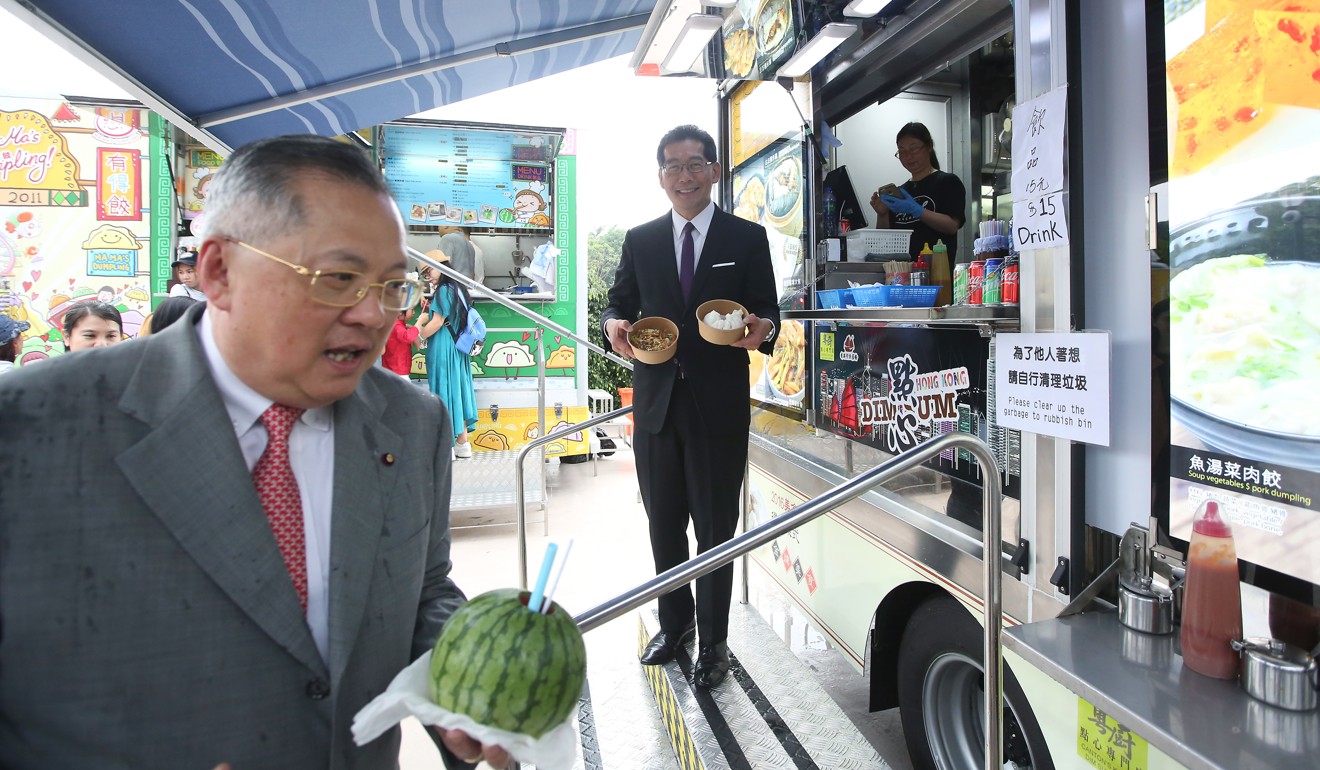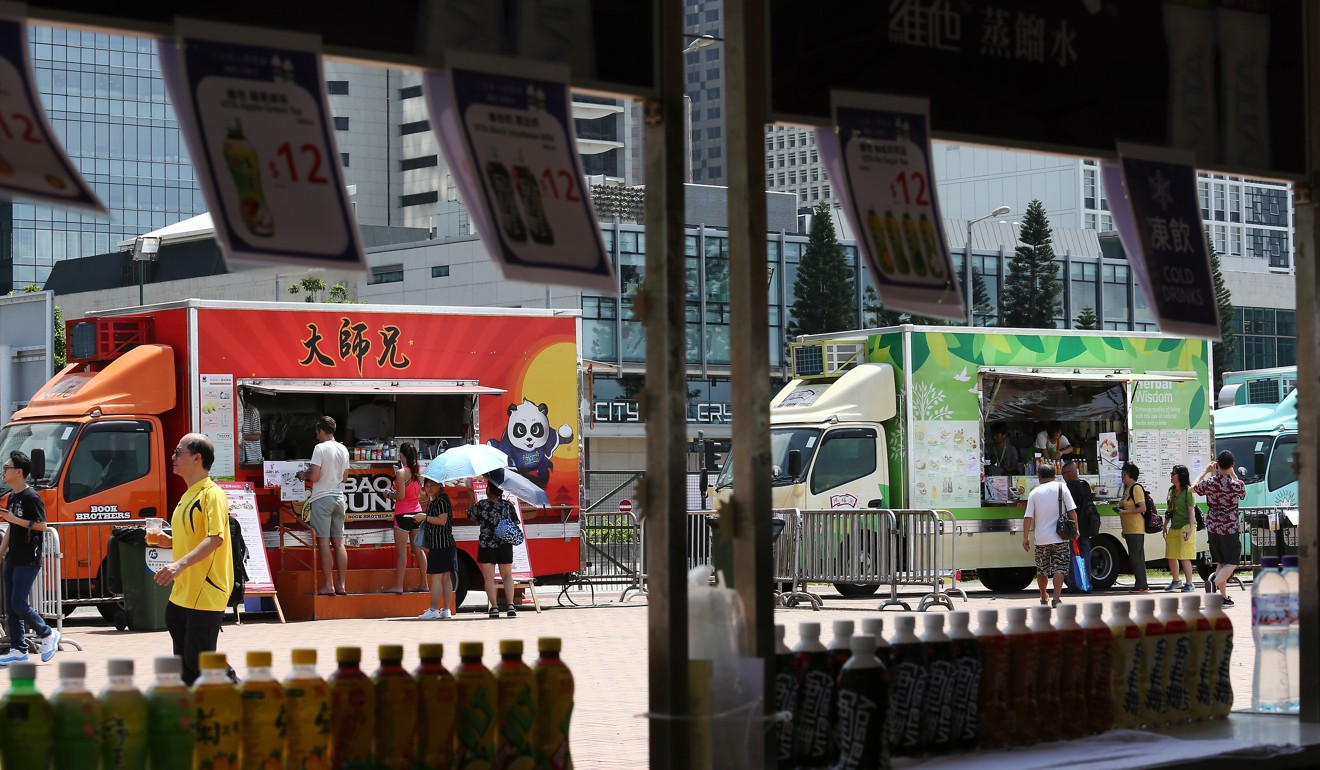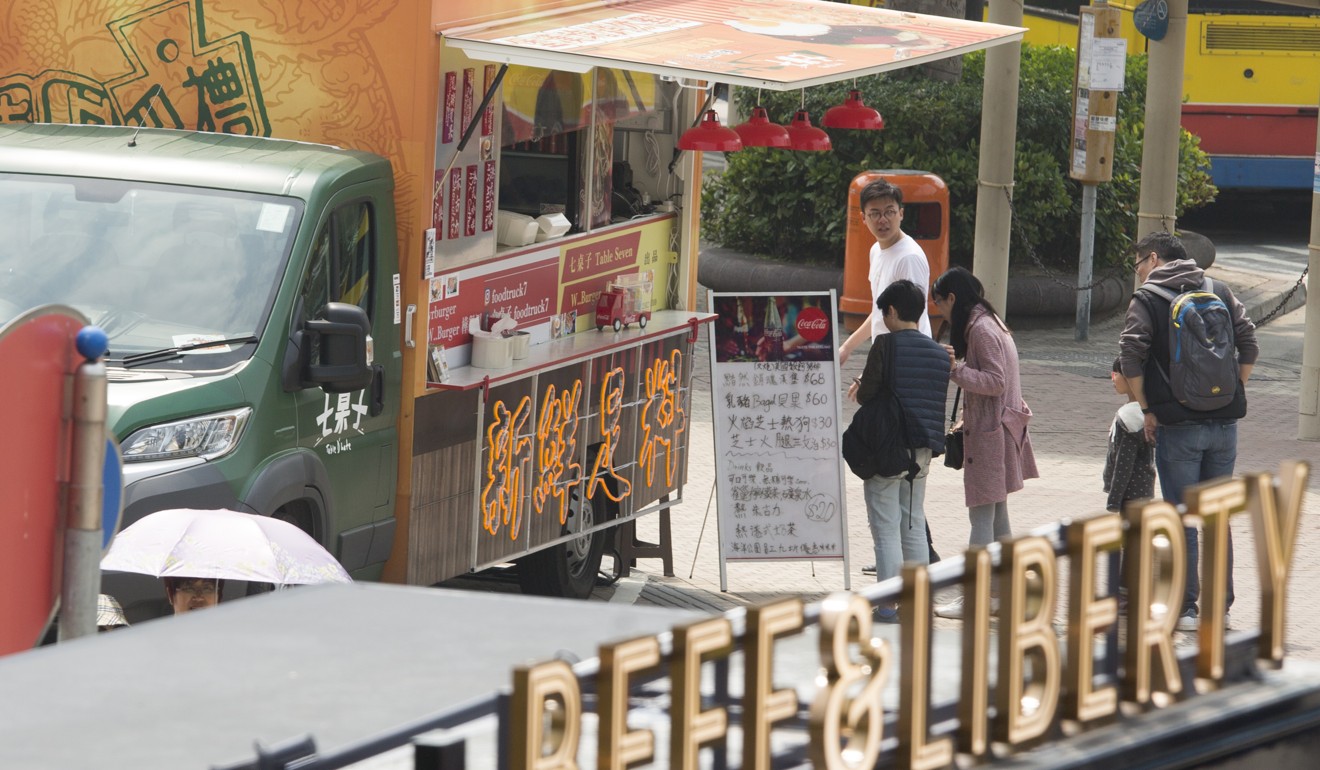
Vegetarian Hong Kong food truck latest to enter difficult race
The new operator, Jajambao, will be first vegetarian food truck in the city and plans to offer meatless Chinese dishes
Despite the less-than-stellar fortunes of Hong Kong’s food truck scheme, a new player is planning to hit the streets soon, the government revealed on Wednesday.
In response to catering sector lawmaker Tommy Cheung Yu-yan’s questions about whether the government would make changes to the scheme in light of the departure of three operators, acting Secretary for Commerce and Economic Development Bernard Chan Pak-li said the next food truck would commence operations after receiving its licence next month.

Chan added that by mid-October, seven of the 15 food truck businesses had brought in HK$1 million each (US$128,000) in revenue since the programme launched in February, while four operators had plans to open a physical shop thanks to the “experience and word of mouth” they had gained through the programme.
So far, only one operator has opened a brick and mortar shop.
A bureau spokeswoman said the new food truck was expected to receive its licence in December, though she did not know when it would begin operations.
The new operator, Jajambao, will be first vegetarian food truck in the city. It plans to offer meatless Chinese dishes including northern Chinese style steamed buns, noodles and barbecue skewers.
Chan also revealed that doing business at locations such as Ocean Park, Tsim Sha Tsui Art Square and Salisbury Garden in Tsim Sha Tsui would be made optional by the end of November, to allow for “greater freedom and higher flexibility”.

Some designated food truck locations such as Ocean Park and Salisbury Garden have been “underperforming”, according to food truck operators.
But the acting commerce secretary rejected calls to expand food truck operations to construction sites and industrial areas.
“[They] are not tourism spots and are unlikely to attract tourists to visit, thereby not conforming to the positioning of food trucks as a tourism project,” he said.
“Industrial areas are congested with people and vehicles with many restaurants in operation. Furthermore, there is no venue management to provide electricity and supporting facilities to the food trucks.

“Operating food trucks at construction sites also raises concerns on industrial safety.”
Chan also dismissed the idea of having the trucks provide their services to private parties and private catering events, saying that their licensing conditions confined them to tourist areas and activities.
The food truck scheme was a tourism initiative announced by then financial secretary John Tsang Chun-wah in the 2015-2016 budget.
The initiative has faced criticism since its inception for its lengthy approval process, the requirement for licences from several different government departments and for how the scheme forced food truck to operate in some underperforming locations.
Chan said a review of the two-year pilot scheme will be completed by the third quarter of 2018, before the trial ends in February 2019.

